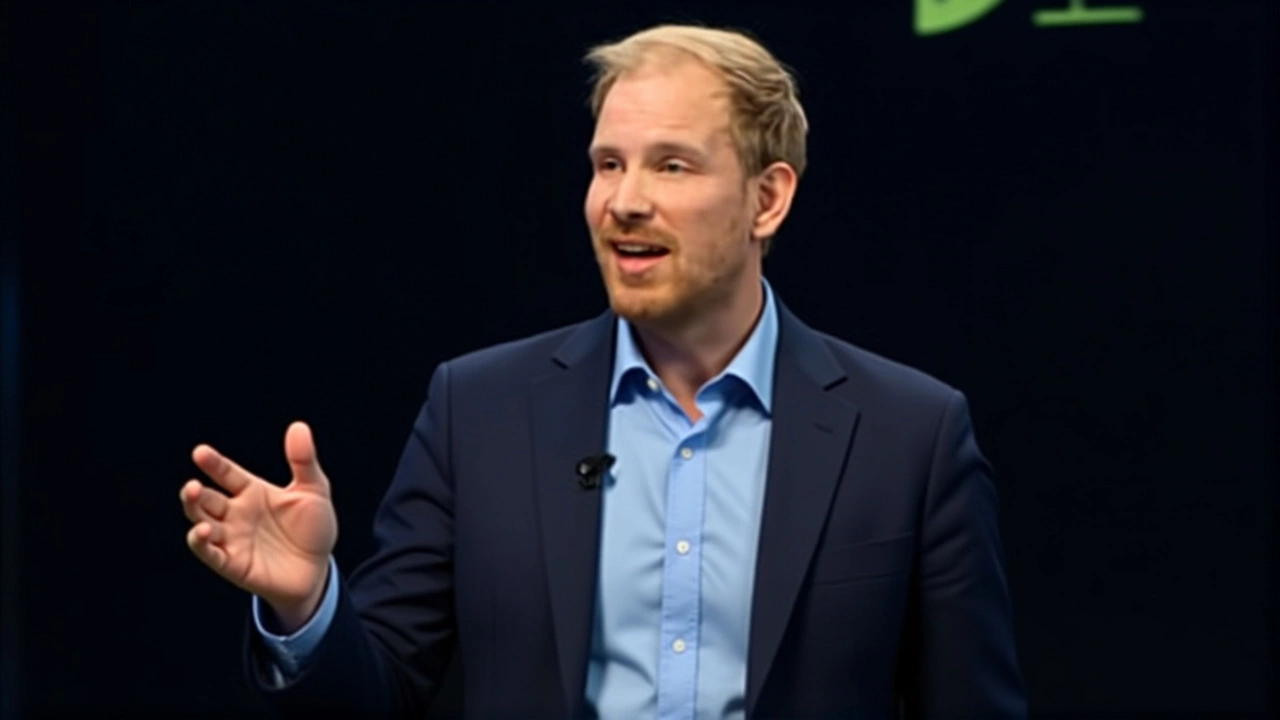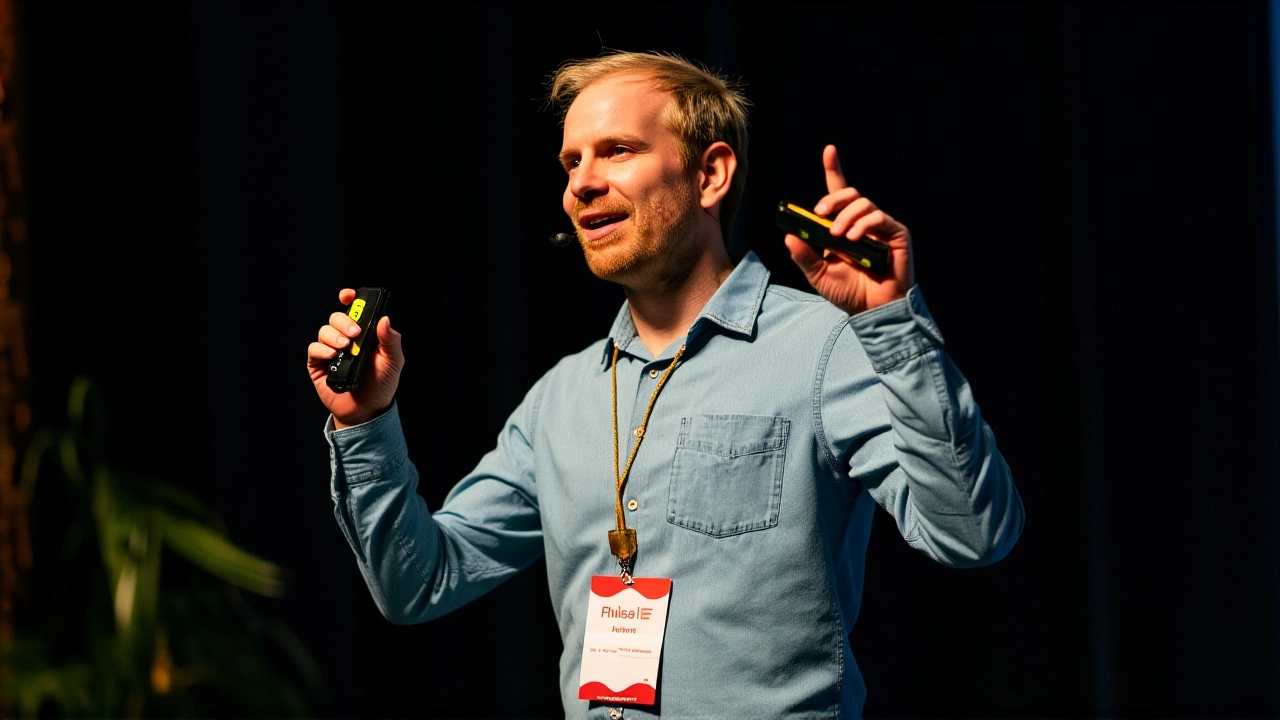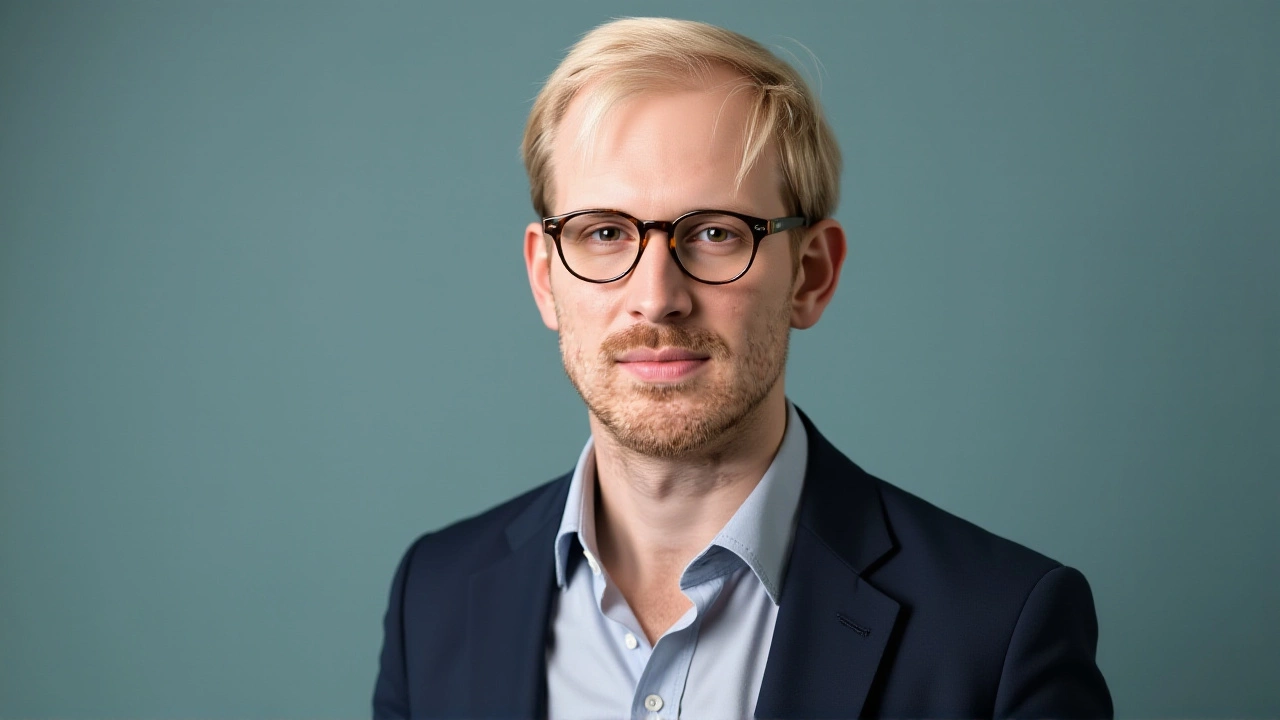On Friday, November 1, 2025, Dutch historian Rutger Bregman stood before a packed room in Robertson Hall at Princeton University and told 100 students something radical: you’re not fine just the way you are. Bregman, the Rutger Bregman behind the global bestsellers Humankind and Utopia for Realists, wasn’t here to offer career advice. He was here to dismantle it. His message? The most dangerous choice you’ll make in your twenties isn’t failing — it’s choosing a high-paying job that drains your conscience. And he’s building a movement to stop it.
What Is Moral Ambition? Four Pillars, One Mission
Bregman defined moral ambition as "the will to make the world a wildly better place." But he didn’t stop there. He broke it down into four non-negotiable traits: the idealism of an activist, the ambition of an entrepreneur, the rigor of a scientist, and the humility of a monk. It’s not about feeling good. It’s about doing hard things — the kind that don’t come with bonuses or LinkedIn endorsements. "Your twenties are really the time when you write the constitution for the rest of your life," he said, his voice cutting through the silence. "Once McKinsey gets its claws in you, then it’s going to be much harder."
He’s not just talking. He’s funded it. Since launching The School for Moral Ambition in 2024, the non-profit has grown to over 19,000 members across 130 countries, with 1,400+ participants in its "Circle" mentorship program and $5 million in funding. All royalties from his new book, Moral Ambition: Stop Wasting Your Talent and Start Making a Difference, go directly to the foundation. Even Adam Grant, the Wharton professor and author, called it a "wake-up call."
The Black Holes and the Battle for Talent
Bregman’s target? The "black hole" professions — consulting, finance, corporate law, and big tech. These fields, he argues, don’t just pay well. They absorb the brightest minds and redirect them away from climate collapse, food system failure, and global inequality. "We’ve created a system where the most talented people are incentivized to solve problems no one cares about," he said. "Meanwhile, the problems that could end hunger or prevent mass extinction? They’re understaffed."
His data isn’t anecdotal. The CIRP Freshman Survey shows that in 1970, 71% of U.S. college freshmen said developing a meaningful philosophy of life was "essential" or "very important." By 2015, that number had dropped to 44%. Today? It’s lower. Meanwhile, the percentage of students prioritizing "being very well off financially" has soared. Bregman sees this not as apathy — but as a structural failure. "We didn’t lose our morals," he told the audience. "We lost our map."
Princeton as Ground Zero
The event at Princeton University wasn’t just a lecture. It was the official launch of the School for Moral Ambition’s College Network, a pilot program co-hosted with the Kahneman-Treisman Center at Princeton’s School of Public and International Affairs. Students in the program will work directly with New Jersey legislators to draft policy proposals on issues like universal basic income and sustainable agriculture. The goal? To turn idealism into legislation before students graduate into Wall Street or Silicon Valley.
"We’re not asking students to quit their dreams," said one participant, 20-year-old economics major Elena Torres. "We’re asking them to pick better ones."

The BBC Controversy: Censorship and Courage
Just days after his Princeton talk, Bregman ignited another firestorm. On November 4, 2025, he publicly accused the BBC of "cowardice" after it censored his Reith Lectures, recorded on October 4, 2025, at the BBC Radio Theatre in London. The offending line? "Donald Trump is the most openly corrupt president in American history." The BBC removed it, claiming "editorial standards," despite the lecture having cleared all internal reviews. Bregman called the decision "a betrayal of public trust," noting the BBC had aired similar critiques of other world leaders without backlash.
"If you can’t say that about Trump," he said in a podcast interview with The Great Simplification, "then what can you say? That climate change is real? That poverty is policy? That democracy is under threat?" The controversy has since sparked international debate about media independence and the chilling effect of political pressure.
A Movement Built on Books, Not Buzzwords
Bregman’s influence stretches far beyond lectures. His TED Talk, "Poverty Isn’t a Lack of Character; It’s a Lack of Cash," remains one of the most viewed of all time. His book Humankind is being adapted into a major documentary series. And his work draws direct lineage to historical moral revolutions — from Thomas Clarkson’s abolitionist campaigns to Susan B. Anthony’s suffrage battles. He doesn’t see himself as a guru. He sees himself as a historian documenting a shift.
"The British abolitionists didn’t win because they were popular," he said in a recent interview. "They won because they were relentless. They didn’t wait for permission. They built networks, published pamphlets, and changed minds one person at a time. That’s what we’re doing now."

What’s Next? The Global Campus Push
By 2026, The School for Moral Ambition plans to expand its College Network to at least five additional universities, including Harvard, Oxford, and the University of Cape Town. Fellowships and scholarships are being rolled out to support students pursuing non-traditional paths — from community energy cooperatives to open-source AI ethics labs. The organization’s mantra? "Awareness is not enough. We’re builders."
For students like Torres, the message is clear: Your degree doesn’t define your legacy. Your choices do.
Frequently Asked Questions
How is moral ambition different from traditional career success?
Moral ambition rejects metrics like salary, titles, or prestige in favor of measurable impact on global challenges — climate, inequality, democracy. While traditional success often rewards climbing ladders, moral ambition asks you to build new ones. Bregman’s foundation tracks outcomes like policy changes enacted, lives improved through direct action, and systemic shifts initiated — not net worth or job titles.
Who funds The School for Moral Ambition, and is it transparent?
The organization has raised $5 million from private donors, including impact investors and philanthropists aligned with its mission. All funding sources are publicly listed on moralambition.org, and 100% of book royalties from Bregman’s Moral Ambition go directly to the foundation. No corporate sponsorships are accepted, and the organization discloses its budget breakdown annually.
Why target Princeton and elite universities specifically?
Elite universities produce a disproportionate share of future leaders in finance, law, tech, and policy. Bregman argues that redirecting even 5% of these graduates toward public-interest careers could transform global systems. Princeton’s involvement signals a shift in institutional culture — and provides a model for other top schools to follow.
What evidence supports Bregman’s claim that students are losing moral direction?
The CIRP Freshman Survey shows a 37% drop since 1970 in students prioritizing "developing a meaningful philosophy of life." Meanwhile, the percentage prioritizing "being very well off financially" rose from 39% to 74% by 2015. Recent data suggests this trend has accelerated post-pandemic, with students increasingly viewing careers as transactional rather than purpose-driven.
How does the BBC censorship relate to Bregman’s broader message?
The censorship highlights the very system Bregman critiques: institutions that prioritize safety over truth. If a public broadcaster can’t call out corruption in a U.S. president — despite historical precedent and evidence — then who can? It’s a microcosm of moral avoidance: choosing comfort over conviction. Bregman argues this silence enables the status quo.
Can moral ambition be taught, or is it innate?
Bregman believes it’s cultivated. His Circle program pairs students with mentors who’ve redirected their careers toward public good — from a former Goldman Sachs analyst now running a clean water NGO to a Silicon Valley engineer who left to design affordable housing. These stories aren’t about heroism. They’re about choice. And choices, he says, can be modeled, supported, and scaled.
